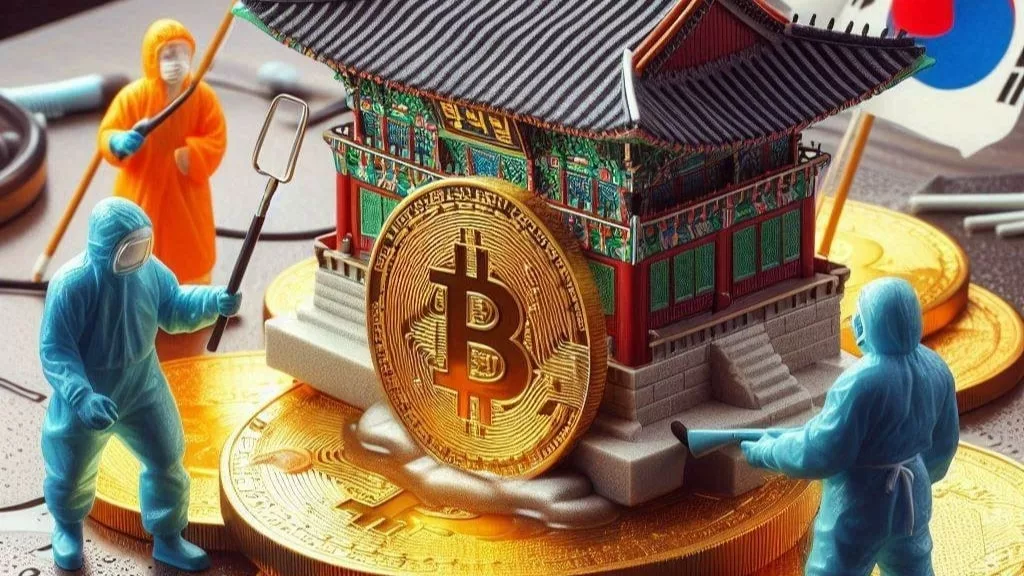
South Korea’s Financial Services Commission (FSC) has decided against creating a national Bitcoin reserve, opting to wait before fully embracing the cryptocurrency. While Bitcoin’s rise continues to capture global attention, South Korea is taking a more conservative approach, prioritizing stability and investor protection over swift innovation.
The FSC’s decision to refrain from establishing a national Bitcoin reserve comes with significant reasoning. Kim Byung-hwan, Chairman of the FSC, made it clear that South Korea plans to hold off on this bold step until it fully understands the broader implications of Bitcoin and its role in the global economy. The country intends to see how other major markets, including the US, handle cryptocurrency regulation, especially under the leadership of the US government, before committing to any large-scale adoption.
Despite the explosive growth of cryptocurrency trading in South Korea, where trading volumes now surpass those of traditional stock exchanges, the FSC remains cautious. While cryptocurrencies like Bitcoin have gained massive popularity, they have yet to prove they can have the same substantial economic impact as traditional financial markets like stocks. Kim raised the key question: can Bitcoin create the same positive economic cycles, such as job creation and business growth, that the stock market does? For now, the FSC’s stance is clear: Bitcoin hasn’t yet demonstrated such an impact, and the country is reluctant to make Bitcoin a cornerstone of its financial system.
The FSC’s reluctance also stems from the uncertainty about Bitcoin’s long-term economic effects. Traditional financial assets like stocks have a clear, demonstrated impact on the economy. They fund businesses, stimulate job growth, and create a cycle of value that supports industries. Bitcoin, on the other hand, despite being a valuable asset in the crypto space, has not yet shown that it can contribute to the economy in the same way.
While Bitcoin and other cryptocurrencies are seen by many as an alternative store of value or investment, their integration into mainstream financial markets, especially in the form of a national reserve, is still a question mark. South Korea’s position reflects this uncertainty and underscores its commitment to stability.
Another major concern for South Korea’s regulators is the safety of investors. Cryptocurrency markets are known for their high volatility, and prices can swing dramatically, leaving investors exposed to significant risks. The FSC has expressed a strong desire to ensure that South Korean investors are protected from the risks inherent in such speculative trading. The volatility and speculative nature of Bitcoin and other digital assets mean that investors can experience rapid gains but also devastating losses.
Given the lack of clear and robust regulatory frameworks in many countries, including South Korea, the FSC’s caution seems warranted. By holding off on integrating Bitcoin into the country’s financial infrastructure, South Korea aims to prevent any potential destabilization of the economy or harm to retail investors who may be exposed to unfair trading practices in the cryptocurrency markets.
South Korea isn’t shutting the door on Bitcoin altogether. Instead, the country is taking a “wait and see” approach. As global crypto regulations continue to evolve, South Korea plans to adapt its strategy to align with the emerging landscape of cryptocurrency.
This position of cautious optimism reflects South Korea’s broader approach to technological advancements. While the country is not opposed to innovation, it is also not rushing to make Bitcoin a central part of its economic system. The future of Bitcoin in South Korea will depend on its ability to prove itself as a stable, impactful asset that can contribute to the economy in a meaningful way.
For now, South Korea’s focus is firmly on protecting investors, ensuring stability, and adapting to the changing global regulatory environment before making any significant moves involving Bitcoin.



Get the latest Crypto & Blockchain News in your inbox.